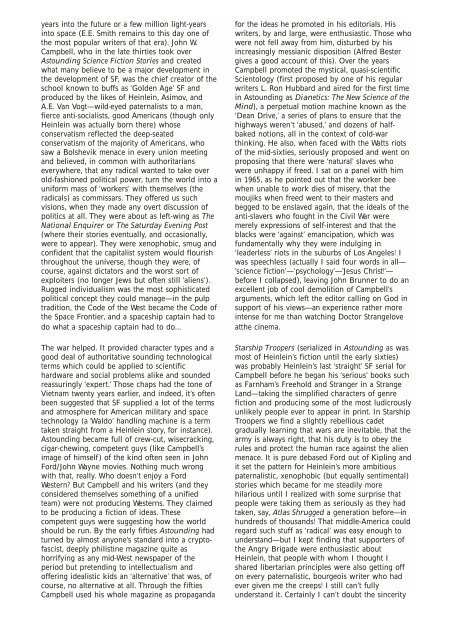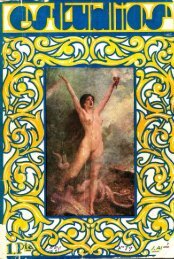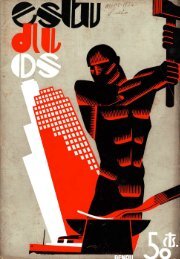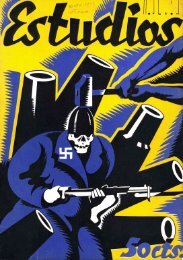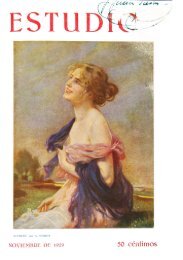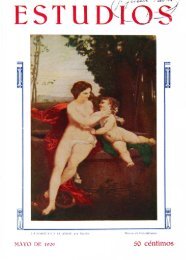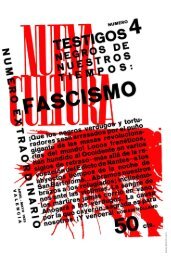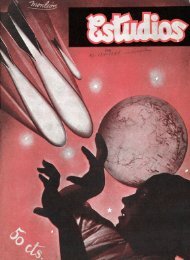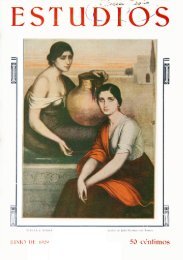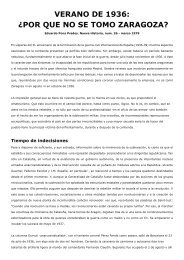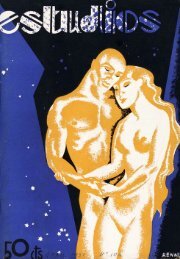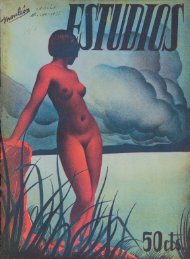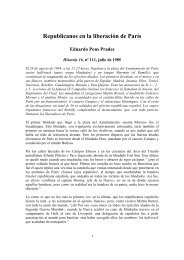Starship Storm Troopers (Michael Moorcock) - Christie Books
Starship Storm Troopers (Michael Moorcock) - Christie Books
Starship Storm Troopers (Michael Moorcock) - Christie Books
Create successful ePaper yourself
Turn your PDF publications into a flip-book with our unique Google optimized e-Paper software.
years into the future or a few million light-years<br />
into space (E.E. Smith remains to this day one of<br />
the most popular writers of that era). John W.<br />
Campbell, who in the late thirties took over<br />
Astounding Science Fiction Stories and created<br />
what many believe to be a major development in<br />
the development of SF, was the chief creator of the<br />
school known to buffs as ‘Golden Age’ SF and<br />
produced by the likes of Heinlein, Asimov, and<br />
A.E. Van Vogt—wild-eyed paternalists to a man,<br />
fierce anti-socialists, good Americans (though only<br />
Heinlein was actually born there) whose<br />
conservatism reflected the deep-seated<br />
conservatism of the majority of Americans, who<br />
saw a Bolshevik menace in every union meeting<br />
and believed, in common with authoritarians<br />
everywhere, that any radical wanted to take over<br />
old-fashioned political power, turn the world into a<br />
uniform mass of ‘workers’ with themselves (the<br />
radicals) as commissars. They offered us such<br />
visions, when they made any overt discussion of<br />
politics at all. They were about as left-wing as The<br />
National Enquirer or The Saturday Evening Post<br />
(where their stories eventually, and occasionally,<br />
were to appear). They were xenophobic, smug and<br />
confident that the capitalist system would flourish<br />
throughout the universe, though they were, of<br />
course, against dictators and the worst sort of<br />
exploiters (no longer Jews but often still ‘aliens’).<br />
Rugged individualism was the most sophisticated<br />
political concept they could manage—in the pulp<br />
tradition, the Code of the West became the Code of<br />
the Space Frontier, and a spaceship captain had to<br />
do what a spaceship captain had to do...<br />
The war helped. It provided character types and a<br />
good deal of authoritative sounding technological<br />
terms which could be applied to scientific<br />
hardware and social problems alike and sounded<br />
reassuringly ‘expert.’ Those chaps had the tone of<br />
Vietnam twenty years earlier, and indeed, it’s often<br />
been suggested that SF supplied a lot of the terms<br />
and atmosphere for American military and space<br />
technology (a ‘Waldo’ handling machine is a term<br />
taken straight from a Heinlein story, for instance).<br />
Astounding became full of crew-cut, wisecracking,<br />
cigar-chewing, competent guys (like Campbell’s<br />
image of himself) of the kind often seen in John<br />
Ford/John Wayne movies. Nothing much wrong<br />
with that, really. Who doesn’t enjoy a Ford<br />
Western? But Campbell and his writers (and they<br />
considered themselves something of a unified<br />
team) were not producing Westerns. They claimed<br />
to be producing a fiction of ideas. These<br />
competent guys were suggesting how the world<br />
should be run. By the early fifties Astounding had<br />
turned by almost anyone’s standard into a cryptofascist,<br />
deeply philistine magazine quite as<br />
horrifying as any mid-West newspaper of the<br />
period but pretending to intellectualism and<br />
offering idealistic kids an ‘alternative’ that was, of<br />
course, no alternative at all. Through the fifties<br />
Campbell used his whole magazine as propaganda<br />
for the ideas he promoted in his editorials. His<br />
writers, by and large, were enthusiastic. Those who<br />
were not fell away from him, disturbed by his<br />
increasingly messianic disposition (Alfred Bester<br />
gives a good account of this). Over the years<br />
Campbell promoted the mystical, quasi-scientific<br />
Scientology (first proposed by one of his regular<br />
writers L. Ron Hubbard and aired for the first time<br />
in Astounding as Dianetics: The New Science of the<br />
Mind), a perpetual motion machine known as the<br />
‘Dean Drive,’ a series of plans to ensure that the<br />
highways weren’t ‘abused,’ and dozens of halfbaked<br />
notions, all in the context of cold-war<br />
thinking. He also, when faced with the Watts riots<br />
of the mid-sixties, seriously proposed and went on<br />
proposing that there were ‘natural’ slaves who<br />
were unhappy if freed. I sat on a panel with him<br />
in 1965, as he pointed out that the worker bee<br />
when unable to work dies of misery, that the<br />
moujiks when freed went to their masters and<br />
begged to be enslaved again, that the ideals of the<br />
anti-slavers who fought in the Civil War were<br />
merely expressions of self-interest and that the<br />
blacks were ‘against’ emancipation, which was<br />
fundamentally why they were indulging in<br />
‘leaderless’ riots in the suburbs of Los Angeles! I<br />
was speechless (actually I said four words in all—<br />
’science fiction’—’psychology’—’Jesus Christ!’—<br />
before I collapsed), leaving John Brunner to do an<br />
excellent job of cool demolition of Campbell’s<br />
arguments, which left the editor calling on God in<br />
support of his views—an experience rather more<br />
intense for me than watching Doctor Strangelove<br />
atthe cinema.<br />
<strong>Starship</strong> <strong>Troopers</strong> (serialized in Astounding as was<br />
most of Heinlein’s fiction until the early sixties)<br />
was probably Heinlein’s last ‘straight’ SF serial for<br />
Campbell before he began his ‘serious’ books such<br />
as Farnham’s Freehold and Stranger in a Strange<br />
Land—taking the simplified characters of genre<br />
fiction and producing some of the most ludicrously<br />
unlikely people ever to appear in print. In <strong>Starship</strong><br />
<strong>Troopers</strong> we find a slightly rebellious cadet<br />
gradually learning that wars are inevitable, that the<br />
army is always right, that his duty is to obey the<br />
rules and protect the human race against the alien<br />
menace. It is pure debased Ford out of Kipling and<br />
it set the pattern for Heinlein’s more ambitious<br />
paternalistic, xenophobic (but equally sentimental)<br />
stories which became for me steadily more<br />
hilarious until I realized with some surprise that<br />
people were taking them as seriously as they had<br />
taken, say, Atlas Shrugged a generation before—in<br />
hundreds of thousands! That middle-America could<br />
regard such stuff as ‘radical’ was easy enough to<br />
understand—but I kept finding that supporters of<br />
the Angry Brigade were enthusiastic about<br />
Heinlein, that people with whom I thought I<br />
shared libertarian principles were also getting off<br />
on every paternalistic, bourgeois writer who had<br />
ever given me the creeps! I still can’t fully<br />
understand it. Certainly I can’t doubt the sincerity


